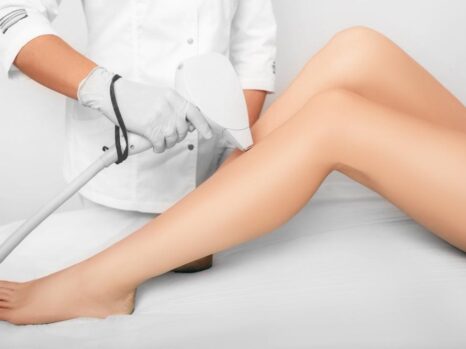Having healthy teeth is only one benefit of maintaining good oral Dental Hygiene. It is essential for your general well-being. Germs thrive in the conditions of your mouth. If you aren’t properly cleaning, flossing, and rinsing your teeth, your body will suffer. As a result, maintaining your teeth should be a top priority. Do not, however, believe that brushing, flossing, and rinsing are sufficient. It is merely the start. Do more to maintain healthy gums, beautiful teeth, and fresh breath. Further procedures to guarantee healthy oral Dental Hygiene are covered in this blog.
Make sure you are brushing in the appropriate manner.
Certainly, there is a proper technique to brush, and the majority of people do it incorrectly. Here are some brushing tips:
1. Using a toothbrush with a soft head
Beginning at the gumline, brush at a 45-degree angle.
brushing the molars, the inside of the teeth, and the gum line.
carefully cleaning the tongue and gums.
Use the appropriate toothbrush.
The market offers an excessive number of brushes, making it difficult to select the best toothbrush. People neglect to look at the bristle, which is an important component, in this. Instead, focus on the toothbrush’s bristles, which should be soft and have a medium to tiny head size. The rest is up to you—color, manual, or electric.
2. Often visit the dentist
The dentist should be seen at least twice a year. It’s necessary because other people than the dentist can clean your teeth during these sessions. But also identify any health problems quickly. If you visit the dentist twice a year or more, they can detect anything early, from gum disorders and tooth decay to cancer and damage. Locate a dentist that is both good and affordable. Moreover, if you discover a decent dentist, stay with them rather than frequently switching.
3. Thoroughly brush—at least twice.
Some people dislike cleaning their teeth. Nevertheless, brushing removes the plaque in the mouth that serves as a haven for bacteria. If you don’t remove this layer, you can develop gum disease. It occurs as a result of food particles left in your mouth after eating. They build up there and can generate acid. Gum disorders result from it, and swallowing these bacteria might damage your overall health.
Brush twice everyday, once in the morning and once at night. Also, wash your teeth again if you eat a snack after brushing at night. Keep in mind that you should never brush your teeth 30 minutes before or after eating anything.
4. Daily flossing
Since it removes plaque accumulation in places the brush can’t, flossing is important. Moreover, flossing aids in the fight against gum disorders, which if unchecked, can lead to diabetes and cardiac issues. Ask your top Bacchus Marsh dentist any queries you have regarding the right way to floss the next time you visit. Moreover, enquire about the best floss; there are several varieties, but Dental Hygiene ribbon is the most well-liked.
5. Modify your eating habits and abstain from sweets
Sugar is the main cause of tooth decay. The amount of acid and germs in your mouth rises when you overindulge in sugar and neglect to properly floss or brush. Moreover, it produces more plaque, which damages enamel and the gums. Hence, anything from ice cream and soda to sweetened coffee might result in tooth decay. Limit your intake, and remember to clean your teeth after 30 minutes if you eat any of them at night.
6. Replace your toothbrush frequently
A three to four month toothbrush change is advised by every dentist. And if you are ill, such as with a cold or a cough, change it as soon as you feel better. Also, it is necessary to change the brush right away if the initially soft bristles begin to feel hard or brittle.
7. Maintain a pure tongue
If you don’t already use one, do so right away. It gets rid of the excess bacteria that has built up on your tongue. Along with eradicating bacteria, it also makes sure your breath is clean. Use the tongue scraper that comes with the toothbrush or purchase a second one.
8. Refrain from smoking
Smoking is more detrimental than beneficial, and it also damages your teeth. For instance, smoking causes your teeth to turn a horrible shade of yellow. Moreover, it erodes your enamel, opening the door for bacteria and gum disease.
9. Use fluoride-containing toothpaste
To prevent cavities, fluoride is a crucial component of toothpaste. It originates from fluorine, an element found in the soil of Earth. Fluoride is an ingredient in several toothpastes and mouthwashes. Make sure to use toothpaste with one unless your dentist instructs otherwise. An early stage of tooth decay might result from not using fluoride for Dental health.
Consume acidic beverages using a straw.
Use a straw if you enjoy drinking lemon juice or coffee every day. Without one, drinking an acidic beverage can cause tooth enamel to shrink. Moreover, it may result in yellowing of the teeth. Use a quality straw to sip coffee, lemonades, iced tea, and other beverages.
How can you maintain your child’s dental health?
Every day, use a warm, moist washcloth to wipe the gums of a baby, even before they begin to erupt with teeth. That will take the sweetness out of their lips.
Limit your intake of sugary beverages or milk in a sippy cup before night. They contain sugar, which as they remain in the mouth for a long time, can promote tooth decay.
Start cleaning the baby’s teeth as soon as they erupt with a toothpaste the dentist suggests. Make sure to brush their teeth with a rice grain-sized amount of paste.
Every day, use a warm, moist washcloth to wipe the gums of a baby, even before they begin to erupt with teeth. That will take the sweetness out of their lips.
Limit your intake of sugary beverages or milk in a sippy cup before night. They contain sugar, which as they remain in the mouth for a long time, can promote tooth decay.
Together with the advice above, visit your dentist right away if you experience any of the following:
Bluish gums
Persistent foul breath
Guilty recession
Dental decay
Continuing mouth sores
A swollen jaw
Toothache
Gingivostomatitis
These are symptoms of bad oral Dental Hygiene, so make sure you have them examined often.
Never skimp on your oral Dental Hygiene. To guarantee the best possible health for your teeth, gums, and tongue, follow these instructions. Since your whole health is reflected in your mouth,










